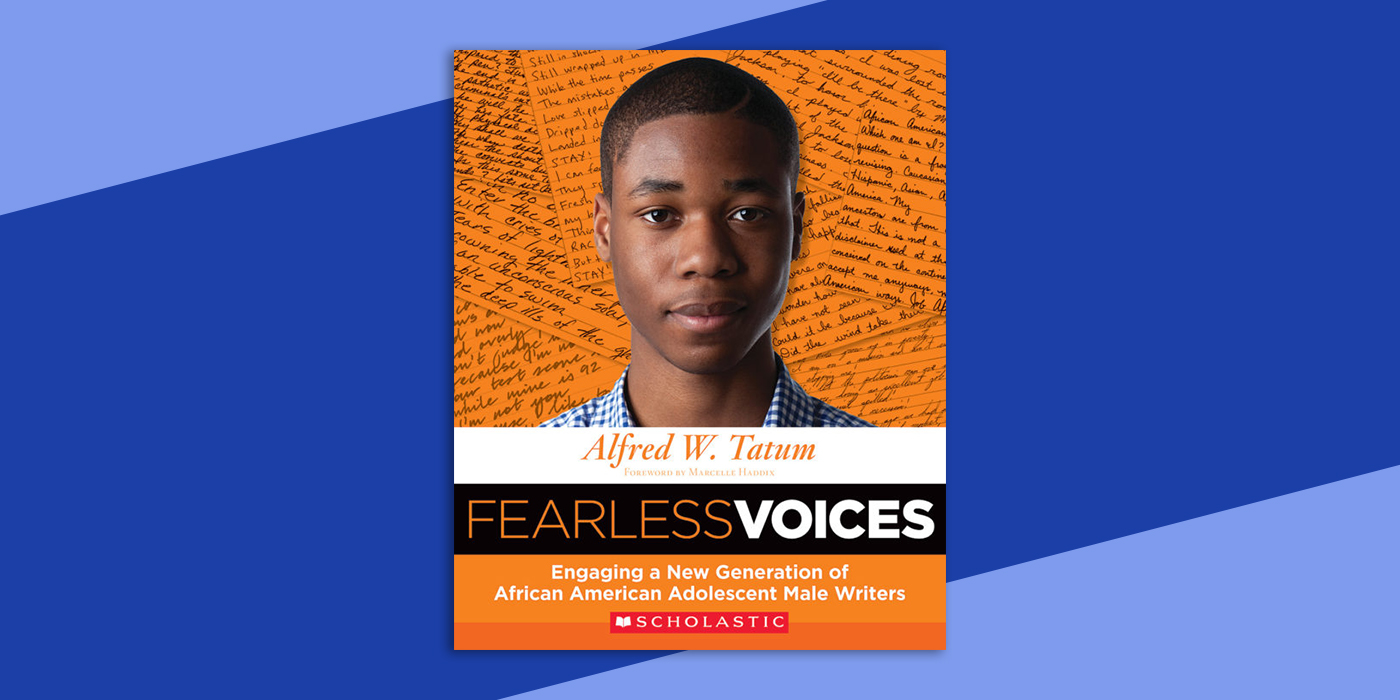Many teens lose interest in reading and writing—often at the point in their lives when these activities became more about schoolwork than storytelling. The only way to invite students back to literacy is to reformulate our approach to presentation of what they view as the culprit—literature itself.
In Fearless Voices: Engaging a New Generation of African American Adolescent Male Writers, I explain how to reframe writing as shared self-expression, using short, powerful biographies as mentor texts, written by authors with varied backgrounds—African American, Native American, Hispanic-American, Asian-American, soldiers, rap artists, ex-prisoners, established poets, social activists, teens, and more. Exposing students to such a broad and flexible range of writing illuminates a breadth of thinking and fosters openness.
Here are nine guidelines to consider when sharing mentor texts to inspire young writers:
1. Share your observations briefly; the goal is to get your students to discuss.
2. Prompt your students to share their own thinking and observations about the mentor text.
3. Encourage them to refer to specific passages or ideas that affect them, or to jot down quotes that strike them as particularly powerful.
4. Call attention to the author’s word choice. How do those words contribute to the overall effect?
5. Ask students to pay attention to the writer’s voice and style. How does the writer convey ideas to the reader?
6. Invite them to share what they notice about mood. What kind of mood does the author create?
7. Focus on additional craft techniques the author uses. How does the writer convey action or create tension?
8. Encourage analysis and critique to demystify the writing process as much as possible for students.
9. Remind students to use the “assessment language” that they are learning from you as they discuss and evaluate mentor text.
The best way to support young writers is to provide them with multiple models from other authors—and ideally, from you as well. Writing and sharing your writing with your students is uniquely powerful. The goal, of course, is to spark their own writing in response.
Find more ways to support young writers with Fearless Voices: Engaging a New Generation of African American Adolescent Male Writers.
